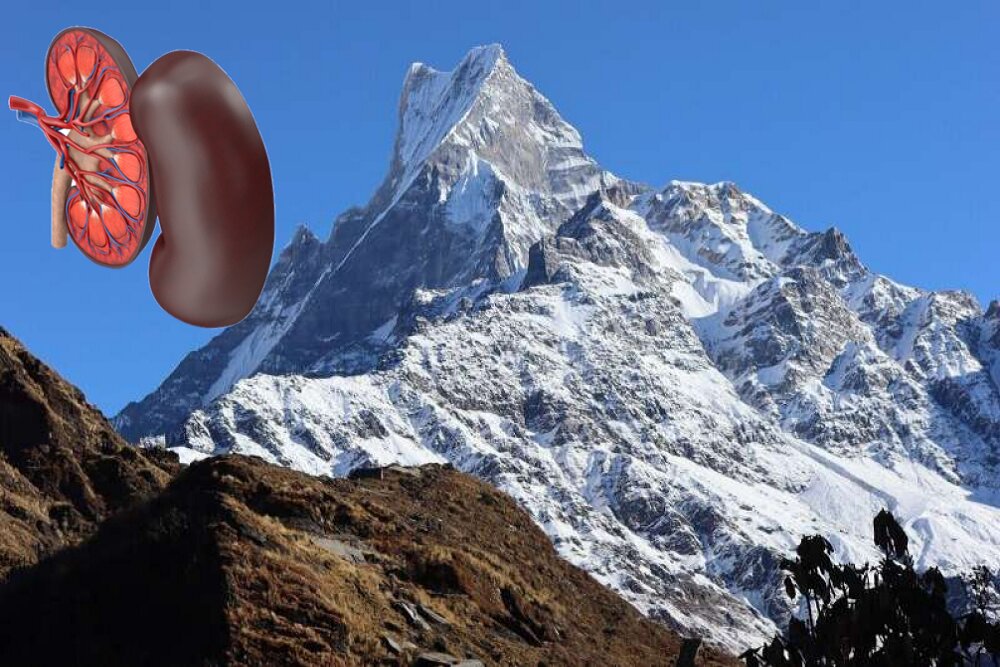Research shows that the kidneys are very important for the body’s adaptation to high altitudes.
According to RCO News Agency, A study by a Mount Royal University physiologist and his group shows the kidneys’ key role in altitude adaptation and offers another explanation for why Sherpas, or indigenous people of Nepal, are better adapted to climbing at high altitudes.
According to Medical Express, the group found that the Sherpa participants performed faster and better in blood acid-base adaptation than the mountaineers. This study shows the key role of kidneys in adapting to altitudes. Sherpa are a group of indigenous people of Nepal. These people have been living in the mountains for 500 years.
As large numbers of people now live and travel to high altitudes, understanding the integrated adaptation to high altitudes in human populations is of increasing importance.
Exposure to high altitudes creates a challenge of oxygenation and acid-base balance in the blood, which is compensated by respiratory and renal adaptation. Researchers assessed respiratory and renal adaptation among age- and gender-matched groups during a gradual ascent to 4300 meters in the Himalayas of Nepal. Sherpas reached respiratory and renal adaptation more quickly, and as a result their blood pH was fully compensated at 4300 meters, while the blood of the inhabitants of lower mountain areas was still alkaline.
This study provides insight into the interplay of ancestral and physiological mechanisms that contribute to adaptation to altitude.
The knowledge gained from this research will benefit physiology in general and provide a new understanding of how different populations adapt to high altitude ascent.
end of message
RCO NEWS
















